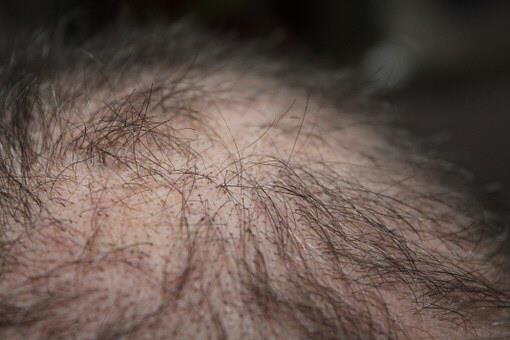Looking for a Dermatologist to help you feel better?
Click on the link below to find the best Dermatologist near you!
Find a Dermatologist Near Me
Alopecia areata is an autoimmune disease that makes hair to fall off in patches. Autoimmune diseases happen when the body’s immune system attacks the body, in this case, it attacks the hair follicles responsible for hair growth, making hair fall off.
Alopecia areata is not a life-threatening condition on its own but could have an emotional and psychological effect like social anxiety on patients, which could lead to life-threatening conditions like depression. Although there is no cure for alopecia areata, it is best to have it treated immediately as inadequate treatment could lead to more pronounced hair loss as outlined below:
Alopecia Totalis: If not appropriately treated, alopecia areata could cause the total loss of hair on the scalp.
Alopecia Universal: It can also cause total hair loss of the body, a condition known as alopecia universal.
Symptoms
The major symptom of alopecia areata is hair loss, which could occur in different forms like the following:
Patchy Bald Spots: Sometimes the hair loss occurs in patches, leaving a few conspicuous bald spots on the head.
Thinning on the Top of the Head: It could set out as thinning on the top of the head, similar to male pattern baldness.
Sudden Loss of Hair: A large chunk of hair could pull out when combing or washing the hair, in other cases you might wake to see a chunk of your hair on the pillow.
Scaling of the Scale: Another symptom is the scaling of the scalp, that could look like an infection.
Complete Body Hair Loss: In some cases, the patient experiences entire loss of body hair, including the eyebrow and chest hair.
Nail Problems: The most common nonhair related symptom is nail problems. Rough nails with dents and spots could be a sign of alopecia areata.
Causes
The following conditions can trigger hair loss:
Genetics: The most common cause of hair loss is having a close relative that has suffered from the same. It is twice more likely to lose hair if a close family member did.
Other Autoimmune Diseases and Allergic Reaction: It is common to suffer hair loss in addition to other autoimmune diseases or because of an allergic reaction. The following conditions are most likely to accompany hair loss:
- Vitiligo
- Psoriasis
- Eczema
- Thyroid disease

- Medications: Hair loss is a common side effect of some medications like cancer, heart problem, and depression.
Asthma
Radiation Therapy: Treatment that exposes the head to radiation could cause loss of hair.
Emotional/Physical Stress: Certain emotional or physical shock can take its toll on the body in the form of hair loss.
Hairstyle: Hair loss may occur as a result of styling the hair too tight like braiding and ponytail.
How do I Prevent Hair Loss?
There is no definite way of preventing hair loss but taking some preventive steps can greatly reduce the risk of hair loss. Some of them are outlined here:
- Avoid twisting and pulling of hair
- Avoid tight hairstyles
- Use mild soap and shampoo
- Avoid medications that could cause hair loss
- Quit smoking
Looking for a Dermatologist to help you feel better?
Click on the link below to find the best Dermatologist near you!
Find a Dermatologist Near Me
Treatments
Alopecia areata cannot be cured, treatments can only help with hair regrowth and don’t protect one from future hair loss. Available treatments include the following:
Minoxidil: It is a type of drug that is applied to the scalp to help hair grow back. It could take several weeks to yield results.
Corticosteroids: They are anti-inflammatory drugs used for autoimmune diseases. They help grow the hair back by reducing inflammation on the scalp.
Anthralin: It is a drug applied to the scalp to irritate the skin and cause hair growth.
Topical Immunotherapy: It involves applying chemicals to the scalp to trigger a rash like an allergic reaction. Several sessions are needed to yield results and could take several months to see the result.
Light Therapy: It involves exposing the affected part to ultraviolet radiation.
Injections: This is an effective treatment for mild hair loss. Steroid injections are applied to the affected area using tiny needles. Treatment is done every month and could take several months.
Oral Medications: Immunosuppressants like cyclosporine are administered to help hair regrowth by suppressing the immune system. This is rarely recommended by doctors though as they have life-threatening side effects like high blood pressure and lymphoma.
Alternative Treatments
Although alternative treatments are not clinically tested, many people have tried some methods and have enjoyed excellent results. Types of alternative treatments include the following:
- Acupuncture
- Micro-needling
- Probiotics
- Aromatherapy
- Laser therapy
- Herbal supplements
- Scalp massage
- Anti-inflammatory diet
- Peppermint oil
- Lavender oil
- Coconut oil
- Olive oil
- Jojoba oil
- Castor oil
- Onion juice
Coping with Alopecia Areata
All types of treatments available for hair loss take time, so even though you anticipate regrowing your hair, measures must be taken to improve mood and social appearance while undergoing treatments. Coping tips include:
Covering your Head: You might want to cover your head with a cap, hat, or scarf to conceal the hair loss. This will make you feel a lot better while your hair regrows.
Style your Hair: Your stylist can help you style your hair to conceal the missing hair. Talk to your stylists about hairstyles that suit your condition.
Temporary Tattoo: You can get a tattoo to conceal hair loss in a very conspicuous part of the body, it is recommended to get a temporary tattoo that can be erased after the hair has grown back.
Join a Support Group: Losing hair can be demoralizing and difficult to take. However, being in the company of people with similar conditions can go a long way to improving your mood. You can share ideas and treatment options with one another that could help your condition.
Shave the Head: The scattered bald spots is disfiguring and could affect self-esteem. Shaving the entire head might be a great way of concealing hair loss.

Alopecia areata is loss of hair in patches, the most common cause is hereditary, although hairstyles, stress, allergies, and medications can cause it too. It involves loss of hair on the head but can spread to some or other parts of the body as in Alopecia Totalis and Alopecia Universal. Avoiding tight hairstyles and certain medications can reduce the risk of hair loss. Treatments available include topical agents and light therapy. Most of these treatments take time, usually months, and don’t guarantee 100% results. Wearing of caps and shaving the head are ways of concealing hair loss till treatment manifests.
Looking for a Dermatologist to help you feel better?
Click on the link below to find the best Dermatologist near you!
Find a Dermatologist Near Me





